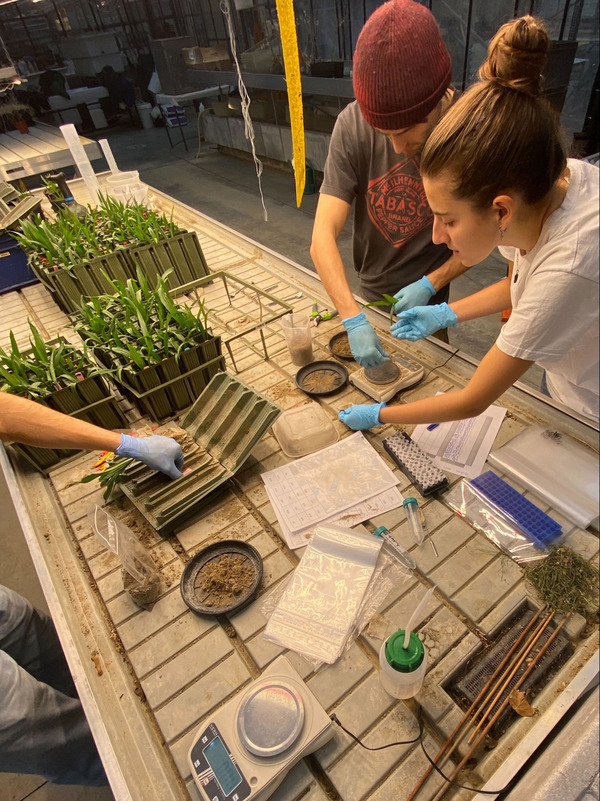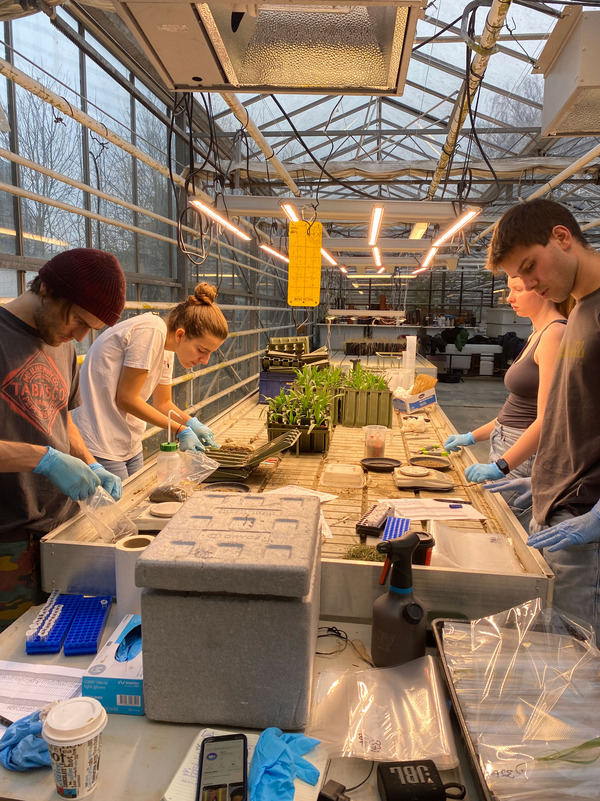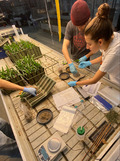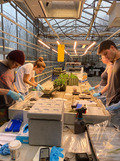As part of the PlantaGo research project, eight third-year bioengineering students from Université libre de Bruxelles (ULB) had the opportunity to actively participate in a real-life scientific experiment during the academic year.
Their mission? To contribute to the understanding of Plantago lanceolata and its potential role in biological nitrification inhibition (BNI) — a natural process that could help reduce nitrogen losses in agricultural systems and promote more sustainable farming practices.
The students conducted a greenhouse experiment involving 60 different genetic accessions of Plantago lanceolata, grown over eight weeks. At the end of the growing period, rhizosphere soil was collected and analyzed in the laboratory to estimate potential nitrification rates, a key indicator of the plant's BNI capacity.
Throughout this hands-on project, the students developed a wide range of skills:
- Working with living plant material in greenhouse conditions
- Handling and analyzing soil samples in the lab
- Measuring mineral nitrogen and understanding the nitrogen cycle
- Engaging with core issues in sustainable agriculture
Their involvement culminated in the writing of a scientific report and an oral presentation of their findings, assessed by their professors. The experience was highly enriching and sparked a strong interest in research for the participants.
This initiative not only contributed to the PlantaGo project's research goals but also served as a valuable opportunity to train the next generation of scientists in cutting-edge environmental research.




 tap and then scroll down to the Add to Home Screen command.
tap and then scroll down to the Add to Home Screen command.